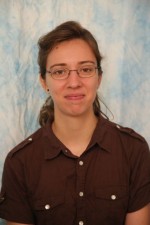Student Talks
Carnegie Mellon University
Kernel and Moment based Prediction and Planning: Applications to Robotics and Natural Language Processing
Abstract This thesis focuses on moment and kernel-based methods for applications in Robotics and Natural Language Processing. Kernel and moment-based learning leverage information about correlated data that allow the design of compact representations and efficient learning algorithms. We explore kernel algorithms for planning by leveraging inherently continuous properties of reproducing kernel Hilbert spaces. We introduce [...]
Carnegie Mellon University
Towards Generalization and Efficiency of Reinforcement Learning
Abstract In classic supervised machine learning, a learning agent behaves as a passive observer: it receives examples from some external environment which it has no control over and then makes predictions. The predictions the agent made will not affect any future examples it will see (i.e., examples are identically and independently sampled from some unknown [...]
Carnegie Mellon University
Harnessing Task Mechanics for Robotic Pushing and Grasping
Abstract: A high-fidelity and tractable mechanics model of physical interaction is essential for autonomous robotic manipulation in complex and uncertain environments. This thesis studies several aspects of harnessing task mechanics for robotic pushing and grasping operations: mechanics model learning, pose and model uncertainty reduction, and planning and control synthesis in the minimal coordinate space. We [...]
Learning Multi-Modal Navigation for Unmanned Ground Vehicles
The Event has been Postponed. Abstract: A robot that operates efficiently in a team with a human in an unstructured outdoor environment must be able to translate commands from a modality that is intuitive to its operator into actions. This capability is especially important as robots become ubiquitous and interact with untrained users. For this [...]
Carnegie Mellon University
Algorithms, Implementation, and Studies on Eating with a Shared Control Robot Arm
Abstract: People with upper extremity disabilities are gaining increased independence through the use of assisted devices such as wheelchair-mounted robotic arms. However, the increased capability and dexterity of these robotic arms also makes them challenging to control through accessible interfaces like joysticks, sip-and-puff, and buttons that are lower-dimensional than the control space of the robot. [...]
Carnegie Mellon University
Foraging, Prospecting, and Falsification – Improving Three Aspects of Autonomous Science
Abstract: Robots exploring the subsurface ocean of Europa, for example, may not have reliable communications with scientists on Earth. Robots exploring with unreliable communications must conduct scientific exploration autonomously. Approaches to deliberative and opportunistic science autonomy that work in the laboratory may not work in the field. This thesis presents three algorithms designed to improve [...]
Characterization of Anchoring in Granular Soils
Abstract: I will present the results of tests conducted to characterize the pullout force of an anchor buried in cohesionless soils. Sensitivity analyses were conducted to understand how key measures of fin geometry affect an anchor's pullout force. To generalize the data collected, I propose a dimensionless model for predicting the performance of arbitrary fin [...]
Carnegie Mellon University
Data-Driven Visual Forecasting
Abstract: Understanding the temporal dimension of images is a fundamental part of computer vision. Humans are able to interpret how the entities in an image will change over time. However, it has only been relatively recently that researchers have focused on visual forecasting—getting machines to anticipate events in the visual world before the actually happen. [...]
Carnegie Mellon University
Planning for Sustained Lunar Polar Roving
Abstract: Lunar polar resources can accelerate deep space exploration by resupplying missions with oxygen, water, and propellent. Before lunar resupply can be established, the distribution and concentration of water ice and other volatiles abundant at the poles of the Moon must be verified and mapped. The need for affordable, scalable exploration of the lunar poles [...]
Carnegie Mellon University
Lidar Simulation for Robotic Application Development: Modeling and Evaluation
Abstract: Given the increase in scale and complexity of robotics, robot application development is challenging in the real world. It may be expensive, unsafe, or impractical to collect data, or test systems, in reality. Simulation provides an answer to these challenges. In simulation, data collection is relatively inexpensive, scenes can be procedurally generated, and state [...]









